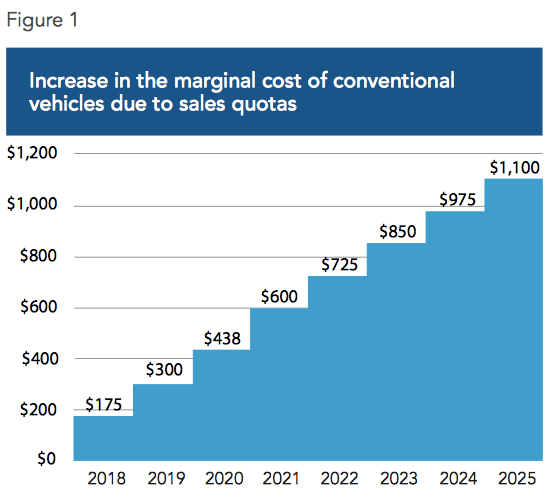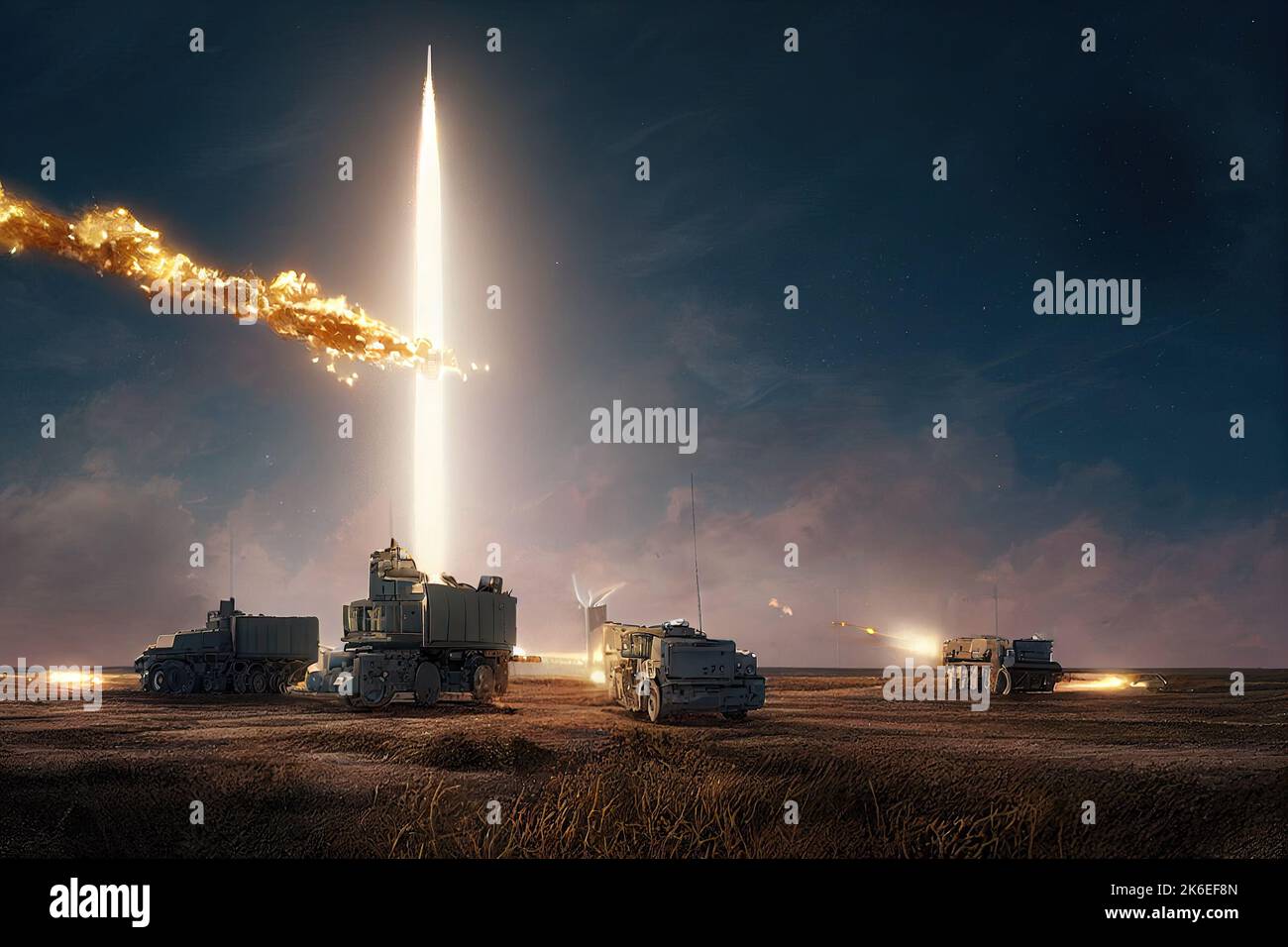Resistance Grows: Car Dealers Challenge Electric Vehicle Quotas

Table of Contents
Financial Burden of EV Quota Compliance
Dealerships are facing substantial financial challenges in complying with mandatory electric vehicle quotas. The high upfront costs and ongoing operational hurdles associated with EV infrastructure and inventory management are creating significant strain.
High Initial Investment Costs
Implementing EV infrastructure represents a considerable financial burden for dealerships. This includes:
- Charging Station Installation: The cost of installing and maintaining a network of charging stations capable of handling various EV models and charging speeds is substantial. This includes not only the purchase of the chargers themselves but also the necessary electrical grid upgrades to handle the increased power demand.
- Specialized Tools and Equipment: Servicing and repairing EVs requires specialized tools and diagnostic equipment, representing a significant capital investment for dealerships. This is a departure from the tools and expertise traditionally needed for internal combustion engine (ICE) vehicles.
- Employee Training: Dealerships need to invest in training their staff on the intricacies of EV technology, maintenance, and repair. This includes specialized training on high-voltage systems and battery technology. The cost of such training can be substantial, especially for larger dealerships with numerous technicians.
- Increased Electricity Costs: The increased electricity consumption associated with charging EVs adds to the operational expenses of dealerships.
Inventory Management Challenges
Balancing EV inventory with the demand for traditional gasoline vehicles presents significant challenges:
- Predicting EV Demand: Accurately forecasting consumer demand for specific EV models is difficult. Overstocking EVs can tie up valuable capital, while understocking can lead to lost sales opportunities.
- Capital Tied Up in Inventory: EVs often have a higher purchase price than gasoline vehicles, meaning that holding unsold EV inventory represents a larger financial risk for dealerships.
- Limited EV Model Availability: The range of EV models available from manufacturers may not always align with the quotas imposed by governments, creating challenges in meeting mandated targets.
Lack of Consumer Demand and Public Charging Infrastructure
Another key factor fueling dealership resistance is the persistent gap between government targets and actual consumer demand, largely driven by limitations in public charging infrastructure and the higher purchase price of EVs.
Range Anxiety and Charging Concerns
Range anxiety and the lack of sufficient public charging infrastructure remain significant barriers to wider EV adoption:
- Inadequate Public Charging: The availability of public charging stations, especially outside of major urban areas, remains inadequate. This is a significant concern for consumers who may worry about running out of charge during long journeys.
- Charging Time and Speed: The relatively long charging times compared to refueling gasoline vehicles also deter some potential EV buyers. Improvements in charging speed are crucial to address this concern.
- Rural Charging Infrastructure: The lack of adequate charging networks in rural areas poses a significant challenge for many potential EV buyers in these locations.
Higher Purchase Prices of EVs
The higher upfront cost of electric vehicles is a significant barrier for many consumers:
- Insufficient Government Incentives: Government incentives, while helpful, are often insufficient to fully offset the higher purchase price of EVs compared to gasoline-powered cars.
- Limited Affordable EVs: The availability of affordable EVs is still limited, hindering broader market penetration.
- High Battery Costs: A significant portion of the higher cost of EVs is attributable to battery costs, which are expected to decline but remain a major factor in pricing.
Dealership Training and Expertise Gaps
The transition to EVs requires dealerships to acquire new skills and invest in specialized training and equipment.
Need for Specialized Training and Tools
Servicing and repairing EVs requires specialized training and equipment:
- Lack of Training Programs: A shortage of readily available, comprehensive training programs for EV maintenance and repair hinders dealerships’ ability to quickly adapt.
- High-Voltage System Expertise: Technicians need specialized training to safely work on high-voltage systems present in EVs.
- Specialized Diagnostic Tools: Dealerships need to invest in expensive and specialized diagnostic tools and equipment to effectively service EVs.
Resistance to Change and Adapting to New Technologies
Some dealerships are hesitant to invest in EV-specific infrastructure due to uncertainty and a lack of resources:
- Concerns about EV Viability: Some express concerns about the long-term viability of the EV market and the potential for stranded assets.
- Resistance to Mandates: Dealerships may resist government mandates, perceiving a lack of sufficient support from manufacturers and policymakers.
- Need for Educational Resources: More educational resources and incentives are needed to encourage dealerships to embrace the transition to EVs.
Political and Regulatory Challenges
The inconsistent implementation of electric vehicle quotas across different regions creates further challenges for dealerships.
Varying Quota Implementation
Inconsistencies in quota implementation across regions pose logistical problems for dealerships:
- Regional Disparities: Differences in consumer demand and charging infrastructure across regions lead to uneven compliance burdens for dealerships.
- Navigating Regulatory Frameworks: The complexity of navigating different regulatory frameworks across regions adds to the administrative burden on dealerships.
- Need for National Consistency: A more consistent and predictable national approach to EV quotas is needed to create a level playing field for dealerships.
Lobbying and Advocacy Efforts
Dealerships are actively advocating for changes to the current EV quota system:
- Industry Coalitions: Industry coalitions are forming to exert political pressure and push for more realistic targets.
- Public Relations Campaigns: Dealerships are engaging in public relations campaigns to raise awareness about their challenges.
- Seeking Alternative Solutions: They are advocating for alternative solutions to meet emission reduction goals that are less disruptive to the industry.
Conclusion
The growing resistance to mandatory electric vehicle quotas highlights the complex interplay between environmental policy and economic realities. Addressing the financial burdens, consumer demand limitations, training gaps, and regulatory inconsistencies is paramount for a successful and equitable transition to electric mobility. Finding common ground between policymakers and the automotive industry is vital to create a supportive environment for EV adoption without unduly burdening dealerships. Open dialogue, collaborative solutions, and a comprehensive strategy that considers the challenges faced by all stakeholders are essential to overcome this resistance and effectively achieve the goals of reducing emissions and promoting wider adoption of electric vehicles. A continued, thoughtful evaluation of electric vehicle quotas is crucial to develop sustainable and effective policies.

Featured Posts
-
 Uk Visa Crackdown Stricter Regulations For Work And Student Visas
May 10, 2025
Uk Visa Crackdown Stricter Regulations For Work And Student Visas
May 10, 2025 -
 Analyzing Palantirs 30 Fall Investment Implications
May 10, 2025
Analyzing Palantirs 30 Fall Investment Implications
May 10, 2025 -
 Jeanine Pirro Trumps Choice For Dc Prosecutor Fox News Connection Explored
May 10, 2025
Jeanine Pirro Trumps Choice For Dc Prosecutor Fox News Connection Explored
May 10, 2025 -
 News From The Bangkok Post Transgender Community Seeks Legal Reform
May 10, 2025
News From The Bangkok Post Transgender Community Seeks Legal Reform
May 10, 2025 -
 Europes Nuclear Shield A French Ministers Perspective Radio Schuman
May 10, 2025
Europes Nuclear Shield A French Ministers Perspective Radio Schuman
May 10, 2025
